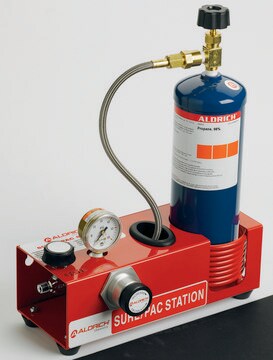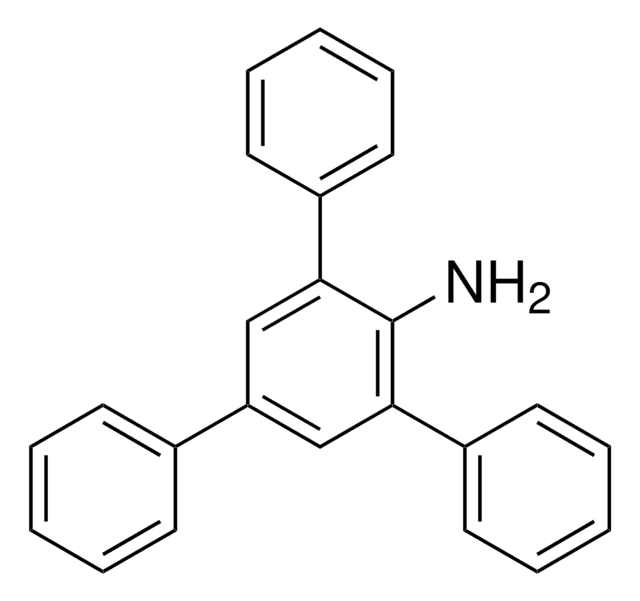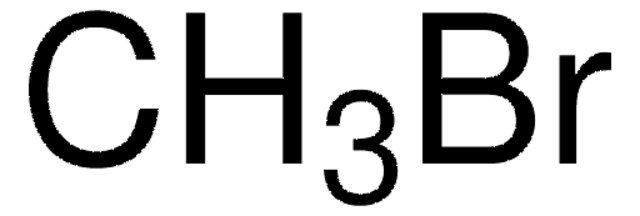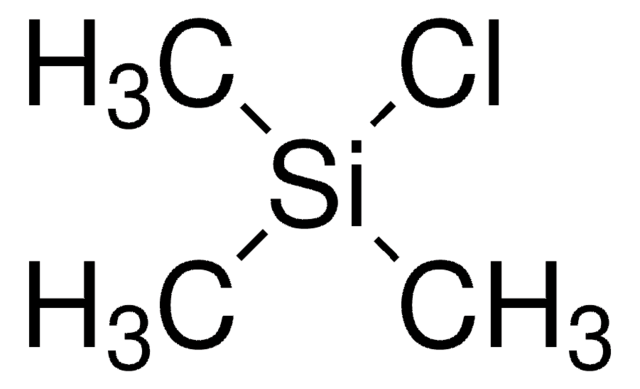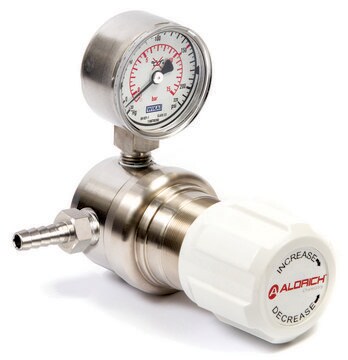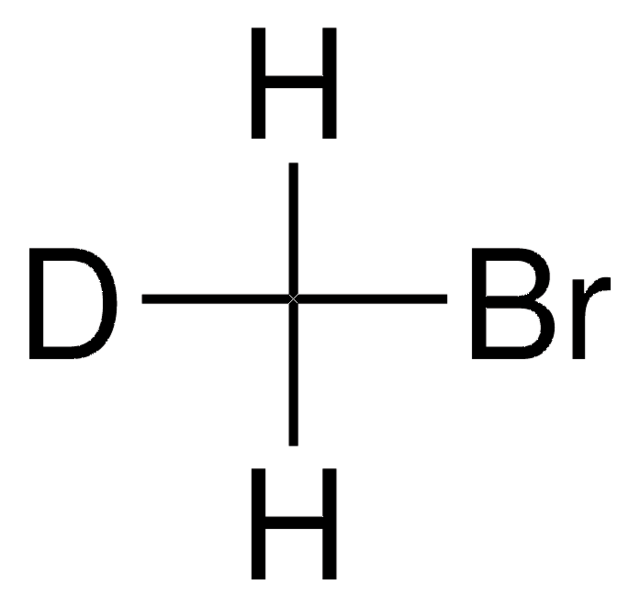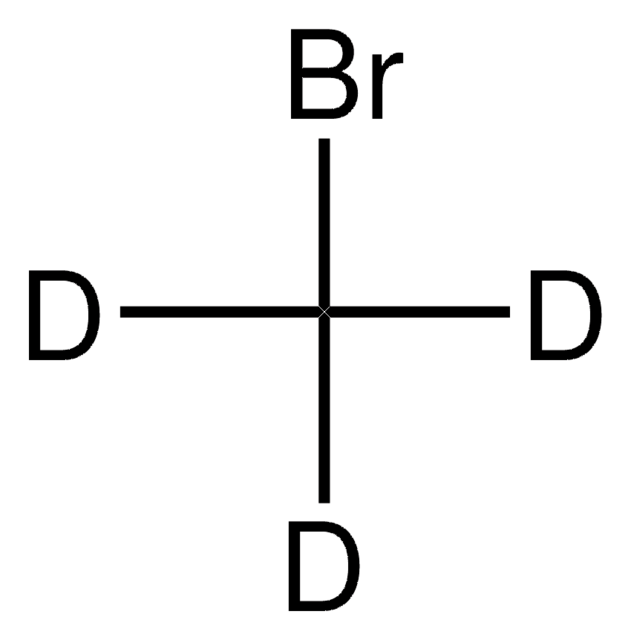295507
Chloromethane
≥99.5%
Synonym(s):
Methyl chloride
About This Item
Recommended Products
vapor density
1.74 (vs air)
Quality Level
vapor pressure
3796 mmHg ( 20 °C)
Assay
≥99.5%
autoignition temp.
1169 °F
expl. lim.
19 %
bp
−24.2 °C (lit.)
mp
−97 °C (lit.)
solubility
water: soluble 5.32 g/L at 25 °C
density
0.915 g/mL at 25 °C (lit.)
SMILES string
CCl
InChI
1S/CH3Cl/c1-2/h1H3
InChI key
NEHMKBQYUWJMIP-UHFFFAOYSA-N
Looking for similar products? Visit Product Comparison Guide
General description
Packaging
Compatible with the following:
Legal Information
also commonly purchased with this product
hose barb
recommended
regulator
Signal Word
Danger
Hazard Statements
Precautionary Statements
Hazard Classifications
Carc. 2 - Flam. Gas 1B - Ozone 1 - Press. Gas Liquefied gas - Repr. 2 - STOT RE 2 Inhalation
Storage Class Code
2A - Gases
WGK
WGK 2
Flash Point(F)
Not applicable
Flash Point(C)
Not applicable
Personal Protective Equipment
Certificates of Analysis (COA)
Search for Certificates of Analysis (COA) by entering the products Lot/Batch Number. Lot and Batch Numbers can be found on a product’s label following the words ‘Lot’ or ‘Batch’.
Already Own This Product?
Find documentation for the products that you have recently purchased in the Document Library.
Customers Also Viewed
Protocols
US EPA Method TO-17: GC Analysis of Volatiles on VOCOL® after Collection/Desorption using Air Toxics Tube
US EPA Method 8260 describes the analysis of volatile organic compounds in solid wastes and ground waters. This application illustrates the analysis of many compounds commonly analyzed by this method using purge and trap coupled to GC-MS.
Our team of scientists has experience in all areas of research including Life Science, Material Science, Chemical Synthesis, Chromatography, Analytical and many others.
Contact Technical Service